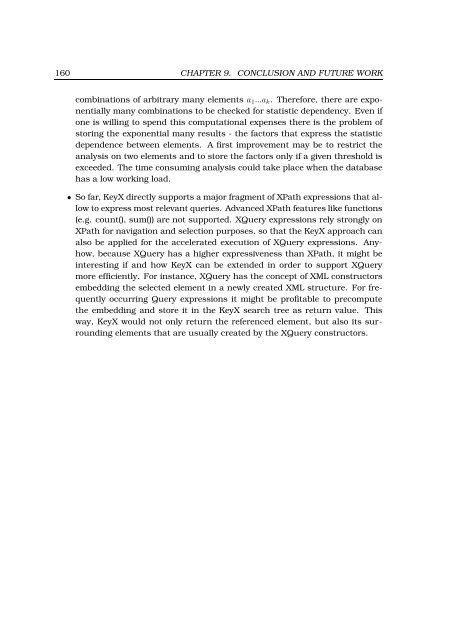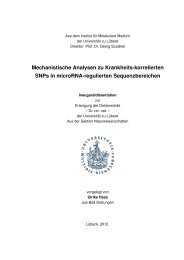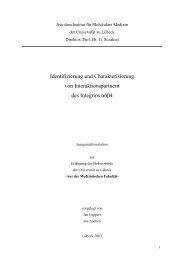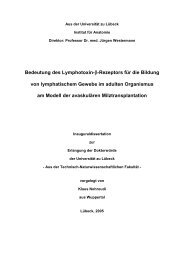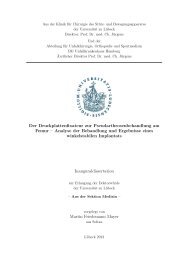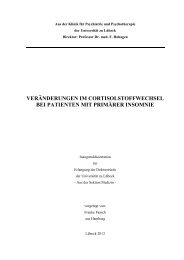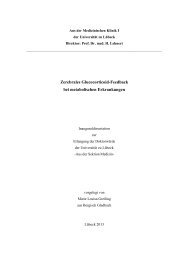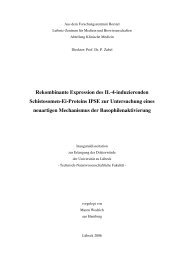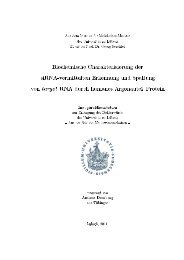url - Universität zu Lübeck
url - Universität zu Lübeck
url - Universität zu Lübeck
You also want an ePaper? Increase the reach of your titles
YUMPU automatically turns print PDFs into web optimized ePapers that Google loves.
160 CHAPTER 9. CONCLUSION AND FUTURE WORK<br />
combinations of arbitrary many elements a 1 ...a k . Therefore, there are exponentially<br />
many combinations to be checked for statistic dependency. Even if<br />
one is willing to spend this computational expenses there is the problem of<br />
storing the exponential many results - the factors that express the statistic<br />
dependence between elements. A first improvement may be to restrict the<br />
analysis on two elements and to store the factors only if a given threshold is<br />
exceeded. The time consuming analysis could take place when the database<br />
has a low working load.<br />
• So far, KeyX directly supports a major fragment of XPath expressions that allow<br />
to express most relevant queries. Advanced XPath features like functions<br />
(e.g. count(), sum()) are not supported. XQuery expressions rely strongly on<br />
XPath for navigation and selection purposes, so that the KeyX approach can<br />
also be applied for the accelerated execution of XQuery expressions. Anyhow,<br />
because XQuery has a higher expressiveness than XPath, it might be<br />
interesting if and how KeyX can be extended in order to support XQuery<br />
more efficiently. For instance, XQuery has the concept of XML constructors<br />
embedding the selected element in a newly created XML structure. For frequently<br />
occurring Query expressions it might be profitable to precompute<br />
the embedding and store it in the KeyX search tree as return value. This<br />
way, KeyX would not only return the referenced element, but also its surrounding<br />
elements that are usually created by the XQuery constructors.


